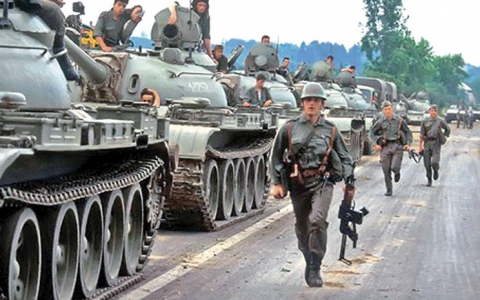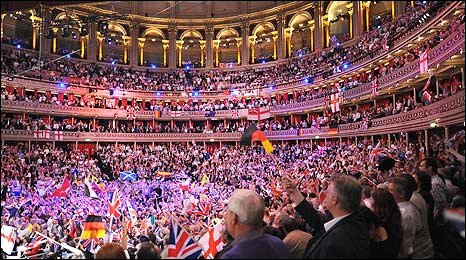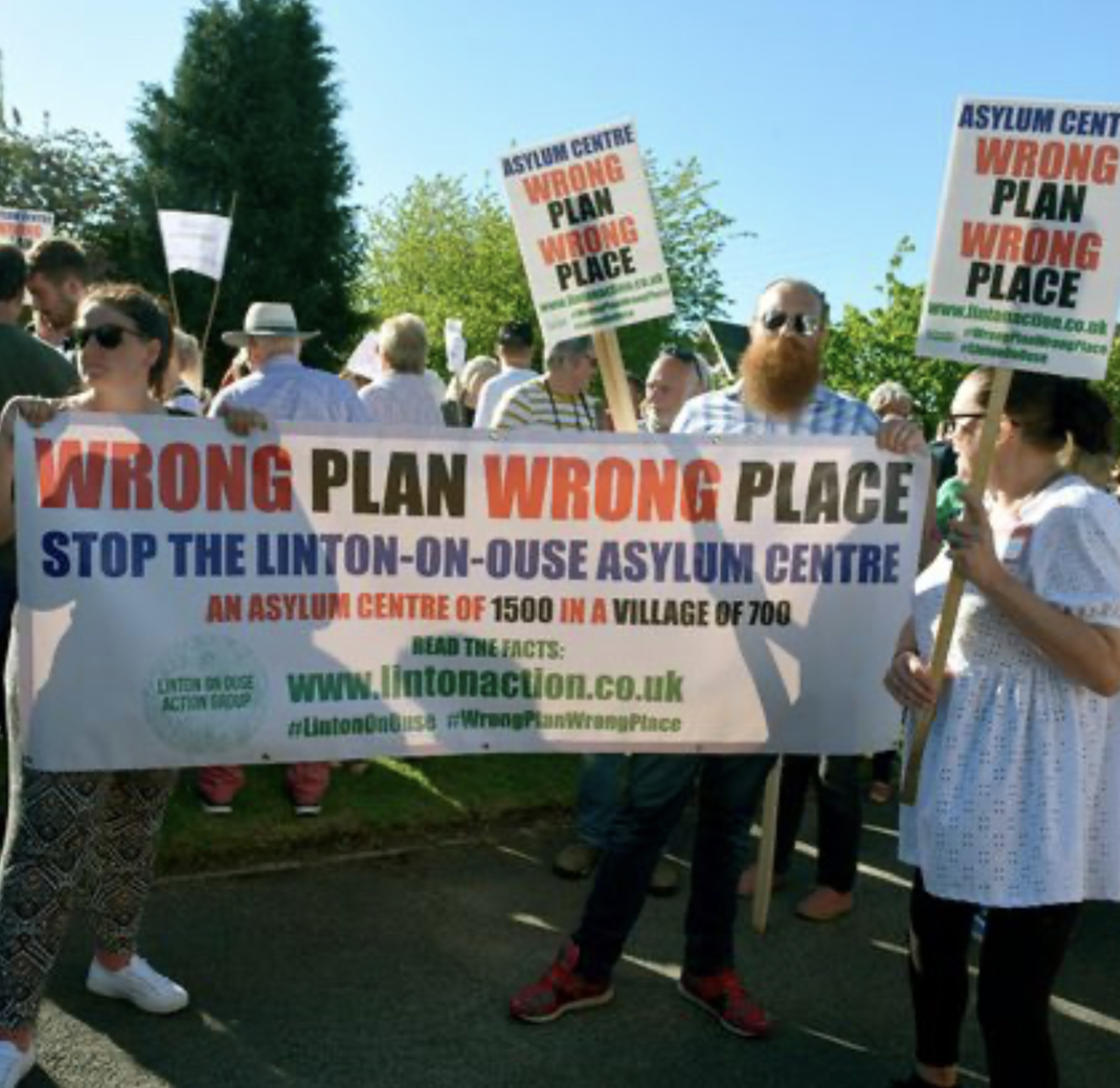By Dr. D. E. Michael
Attitudes to the race issue in Britain have changed dramatically over the years. In 1958, 71% of respondents to a Gallup poll were opposed to mixed marriages between coloured people and whites. By 2018, a MORI poll showed that only 6% would ban or disapprove of marriages between different races or ethnic groups.
On 26 April 1968, when Enoch Powell made his ‘Rivers of Blood’ speech opposing coloured immigration, public reaction was overwhelmingly positive. A Gallup poll taken shortly afterwards found that 74% agreed with him. By 1972, a Daily Express poll revealed Powell to be the most popular politician in the country. As late as 1976, 70% of respondents to a Gallup poll described immigration by coloured persons as ‘a very serious social problem’. Today, the situation is very different. Now, the Migration Observatory reports ‘. . . consistent question wording since 2013 suggests that there has been a recent softening of attitudes with just 45% agreeing that there are too many immigrants in 2017 compared to 64% just 4 years earlier’. It does not even mention race.
The extent to which ‘wokeness’ has permeated public consciousness can also be seen from a 2019 YouGov poll that found that 42% of respondents considered it ‘unacceptable’ for white people to wear blackface makeup (32% thought it acceptable; the rest didn’t know). A 2021 poll by the Higher Education Policy Institute found that a majority of 25% believed that people who had made ‘racist remarks’ should not even be permitted to speak on the campuses of higher education institutions.
Greater Contact
Why have there been such changes in attitudes? The view of the pro-immigration lobby is that it is due to ‘greater contact’ with other races. Indeed, in 1954, when a Gallup poll asked British people ‘Do you personally know or have you known any coloured people?’ only 42% responded positively. Today, in 2021, there are hardly any parts of the United Kingdom where coloured people do not reside; in many places they have become a majority. So, without doubt, there is greater contact. However, this is not the whole story. Contact between ethnic groups may be one factor affecting attitudes but it is not in itself a sufficient condition for inter-ethnic bliss. Some of the worst ethnic conflicts in modern history have been between groups that lived in close contact: Serbs and Croats in the former Yugoslavia; Tutsi and Hutu in Rwanda; Germans and Jews in pre-World War II Germany. Much, then, depends on the nature of the contact between the groups.

Here the matter becomes superficially puzzling. It is not clear that contact between whites and non-whites in Britain has been favourable for whites (I phrase this carefully for legal reasons). The disproportionate crime statistics, loss of freedom, gang rapes, ‘positive’ discrimination, and other less delightful consequences of such contact might have been offset to some extent by our new-found ability to enjoy the delights of reggae music, vindaloo, and colourful news broadcasters – but it seems rather hard to envisage how this alone could have generated such dramatic shifts in public opinion. Nor can dislike for nationalism stemming from memories of World War Two explain much – we would expect this to weaken rather than strengthen with the passage of time.
Something more has been happening in Britain. Since approximately the 1930s, the mechanisms of social control – both those that use violence (such as the police, courts, and army) and those that use persuasion (such as the media, church, education system, and politicians) – have been taken over by people who are dedicated to various globalist agendas. Thus as early as 1936 the old Public Order Act outlawed political uniforms and was aimed specifically at Mosley. The process intensified during and after World War Two and became more institutionalised with the early Race Relations Acts in the 1960s. The process took a great leap forward in the mid-1970s: ethnic nationalist voices could still be heard in the mainstream even in the early 1970s, but they had mostly been silenced by 1976 when the broadcasting and related unions tightened their grip on the airwaves and a new Race Relations Act was passed. Finally, in recent years the private sector has become increasingly infected, with the consequent rise of ‘cancel culture’.
Public Discourse
This process enabled the public debate to be changed. Public discourse could no longer concern itself with the negative effects of immigration or the preservation of the culture and identity of the peoples of the British isles. It could not criticise specific ethnic groups (apart from whites) or praise the white race. Instead, ethnic nationalism was increasingly depicted as a ‘social problem’ to be marginalised, criminalised, and punished.
Why did this happen? Against an overall background of globalisation, fed by economics and technology, many structural factors were at work. Some writers, such as A K Chesterton, also invoke the influence of international elite groupings such as the Bilderberg Group – such views are difficult to prove or disprove. A two-party, first-past-the-post electoral system concentrated political power in the hands of organisations that, with the decline in the British Empire and the advent of two world wars, had become globalist to the core. The trade unions moved increasingly towards globalism, dragging the media and education systems with them. The churches had become threatened by a rise in disbelief and were seeking to attract new, young blood by appearing ‘trendy’ and ‘radical’. Finally, the police were pressurised by allegations of unfairness from the immigrant communities and responded with widespread reforms; other reforms were imposed on them by the politicians. Against all this, the patriots of Britain had no public voice. They had few resources. They were disorganised, marginalised, silenced and, increasingly, dehumanised.
Two important points should be noted here.
First, this phenomenon principally affected ‘ethnic’ nationalism. Civic nationalism remains tolerated but only so long as it does not stray into ethnic territory. This is why civic nationalists are at such pains nowadays (unlike in the 1960s) to ‘condemn racism’ at every opportunity – they must keep their distance to survive. They still have powerful support in the media, in parliament, and among the public. Indeed, they were able to muster sufficient support to achieve Brexit.

Second, this phenomenon affects Britain and its former white colonies but is much less pronounced in several other European countries. In Eastern Europe, especially, the mechanisms of social control have only relatively recently been liberated from Soviet communism, which used them crudely, incompetently, and thus ineffectively. They have not yet been thoroughly subverted by globalists. In several countries nationalists have identified the dangers and are putting up a spirited resistance.
What are the Implications of this Analysis?
First, there really is no parliamentary road to power. Attempts to pursue such a path will be strangled by institutions that will not permit our views to be heard. Their arguments will seep, unopposed, into public consciousness and will have their effect. This is not a case against participation in elections, which may have a variety of tactical advantages (perhaps for publicity, or when the two ‘main parties’ are in close competition and our intervention could make a big difference). Rather, it is to suggest that pinning our hopes on such participation as a significant political strategy will lead to disillusionment.
Second, the absence of a parliamentary road to power is not as much of a problem as it might seem. Parliamentary power is overrated, being constrained by powerful national and international forces. Even a majority in parliament is no guarantee that one can impose one’s political will on the country – as Theresa May demonstrated. Politics is a game of resources. You win when either (a) you gain control of sufficient resources to achieve your goals, or (b) you deprive your opponent of the resources he needs to achieve his goals. Parliamentary power, although useful, is frequently neither a necessary nor a sufficient condition for such political victories.
Third, although the parliamentary route to power, and effective engagement in politics at a national level, remain difficult for ethnic nationalists in Britain, it is still possible to do politics effectively at the subnational (local) and supranational (international) levels. By ‘doing politics’ I mean acquiring resources and controlling them to achieve political objectives at a local and international level.
In this environment a strategic approach to ‘doing politics’ could yield rewards. In short, we need to learn from the world of military planners and systems analysts. Too often, radical political movements produce sets of lofty ideals but go no further. They then wait for fate to intervene, or for the electorate to ‘wake up’. Invariably, the electorate (as a result of the mechanisms of social control mentioned above) remains asleep, and such movements perish. Their approach is that of a chess player who simply moves pieces randomly in the hope that his opponent will blunder into defeat. Unfortunately, our opponents are grandmasters.
Achievable Goals
A more productive approach is to translate the lofty ideals into specific low-level objectives that (crucially) are achievable within a given timeframe, either with the resources we have or with the resources we could reasonably acquire. For each objective we then formulate strategies that are practicable given our resources. We can add contingency plans – alternative strategies to use if things go wrong.
If we don’t have many resources, it makes sense that early strategies would concentrate on acquiring resources. So, after making a firm commitment to a strategic approach, we should be looking at resource acquisition as a first stage. Setting up businesses (such as Grandma Towler’s tea and coffee), exploiting England’s common law system to achieve valuable legal precedents, building international links, building links with useful people – these are all examples of possible early objectives. They can then be used to build more ambitious strategies. At the same time we need to anticipate attacks on our resources by the enemy and then evolve strategies to counter them. Suddenly we become a more formidable foe.

Planning needs to be done cleverly. Nationalist movements have either not planned at all, or they have planned clumsily. Consider the BNP in past decades. Its strategy was to win council elections. It became good at this. However, it had no idea what to do next. It could do little or nothing with these victories – the gap between winning council seats and transforming Britain was vast; the BNP could not bridge this gap; its supporters became bored and rebellious, and the whole thing collapsed. Likewise with Britain First. Its principal strategy was activism on social media platforms. It was easily predictable that eventually the social media platforms would pull the plug and everything would collapse. In both instances the planning was deficient – the BNP had a strategy that did not go far enough, and Britain First had a strategy that was too vulnerable to attack.
In summary, by subverting the mechanisms of social control, our enemies have successfully changed public opinion against us over a period of 80 years. We are unlikely to reverse this situation simply by fighting elections and hoping for the best. Learning from military planners and systems analysts, we need to become far more sophisticated. We need to evolve good quality strategies. Initially these could concentrate on resource acquisition, community building, starting businesses, achieving legal victories, building links with useful people and organisations. As resources are acquired, they can be deployed in ever more ambitious strategies, at all times anticipating the possible responses of the opposition. In this way we will gradually build a movement that will be able to defend our people and homeland as effectively as possible, given the constraints under which we must operate.









